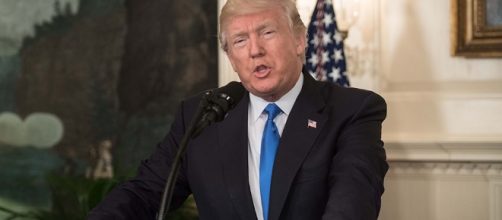Acting Solicitor General Jeff Wall filed a final plea on Wednesday to the U.S. Supreme Court to block the injunctions even if the lower courts thumbed down the travel ban by President Donald Trump. There is, however, an alternative plan in case the court keeps the travel ban.
In an Iowa campaign rally to celebrate the poll victory of some Republican in special elections, Trump announced the new immigration rules. They would include a five-year ban on receiving welfare benefits for new immigrants.
Tough talk on immigration
To justify the tougher immigration rules, Trump accused other countries of not treating the U.S.
fairly on cross-border matters. He said that those who want to enter the U.S. must prove they support themselves financially by not using welfare for five years. In the same rally, Trump announced the plan to fix solar panels on the proposed wall on the border with Mexico. By placing solar panels on the wall, it will provide lower-cost energy and help shoulder the cost of the wall that Mexico refuses to pay.
While Trump tried to pass off the idea as his own when he said, “Pretty good imagination, right? Good? My idea.” He made a similar claim in Cedar Rapids when he said he would give the audience an idea nobody has heard about yet. "We’re talking about the southern border, lots of sun, lots of heat,” Trump said.
BBC, however, pointed out the inclusion of solar panels in the proposed border wall was submitted by companies.
Supreme Court final plea
The new measures likely anticipate the Supreme Court will not remove the injunctions made by several lower courts against the travel ban. There is a 90-day ban on travelers from Libya, Iran, Somalia, Sudan, Syria, and Yemen.
Refugees are covered by another 120-day from entering the U.S. The longer ban targets to give the Trump government sufficient time to implement stronger vetting procedures, Reuters reported.
Wall, according to the court document, insisted the lower courts wrongly second-guessed Trump on national security policy when it reviewed the president’s March 6 executive order.
The Acting Solicitor General explained, “The president expressly determined that the order’s provisions are needed to promote national security, but the lower courts here … nullified that judgment.” On Tuesday, attorneys for Hawaii and individuals in Maryland filed documents asking the U.S. Supreme Court to stop the ban from going into effect.


